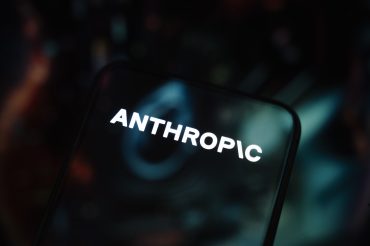

Meta’s AI recruitment drive sparks talent war as tech companies compete for limited pool of 2,000 elite researchers
Key Takeaways
- Meta offers up to $300 million packages to recruit top AI researchers from OpenAI and other leading labs, with Mark Zuckerberg personally involved in the recruitment push.
- Over 150,000 tech jobs lost since 2023 despite massive AI investments, as companies automate roles while competing for elite AI talent numbering only 2,000 globally.
- OpenAI counters with mission-driven culture and Profit Participation Units, criticizing Meta’s approach as focusing too heavily on compensation over purpose and long-term vision.
Introduction
The artificial intelligence industry faces an unprecedented talent war as Meta and OpenAI engage in aggressive recruitment battles that highlight AI’s transformative impact on the workforce. Meta has launched compensation packages reaching $300 million over four years to secure top researchers, while simultaneously the tech sector has eliminated over 150,000 jobs since 2023.
This competition centers on approximately 2,000 elite AI researchers worldwide, creating a stark divide between those commanding extraordinary salaries and workers facing displacement. The battle reflects broader tensions about AI’s role in reshaping employment across technology and beyond.
Key Developments
Meta has intensified its recruitment campaign under Mark Zuckerberg’s direct involvement, targeting researchers from OpenAI, DeepMind, Anthropic, and Apple. The company recently secured Apple’s Foundation Models lead Ruoming Pang with a package exceeding $200 million and recruited Tesla’s former VP of software engineering David Lau.
OpenAI has faced significant talent pressure, with CEO Sam Altman revealing Meta’s attempts to recruit his team members with $100 million signing bonuses. OpenAI has responded by recruiting xAI’s architects Uday Ruddarraju and Mike Dalton, known for building xAI’s 200,000-GPU Colossus supercomputer.
Meta has established a new Superintelligence Lab led by Scale AI’s Alexandr Wang, staffed with high-profile hires across the industry. The company has invested $14.3 billion in Scale AI and launched a $15 billion initiative toward Artificial Super Intelligence development.
Market Impact
The talent war has created what insiders call a “summer of comp FOMO” across Silicon Valley, with compensation packages reaching unprecedented levels. Meta’s aggressive financial strategies have stunned the industry and forced competitors to reassess their retention strategies.
Companies are increasingly acquiring entire firms to secure talent, as seen in Meta’s Scale AI acquisition and Google’s $2.7 billion purchase of Character.AI. The scarcity of qualified researchers has driven valuations to extreme levels, with some firms paying premium prices for proven expertise.
Despite massive AI investments, the broader tech sector continues experiencing significant layoffs. Microsoft and Intel have announced substantial workforce reductions, reflecting the industry’s focus on automation over human capital in many areas.
Strategic Insights
The competition reveals fundamentally different approaches to talent acquisition and retention. Meta emphasizes immediate financial rewards and rapid scaling, while OpenAI focuses on mission-driven culture and long-term incentives through Profit Participation Units.
Meta’s strategy reflects its need to close the gap with AI leaders after its significant investment in the metaverse. The company’s approach prioritizes speed and compute availability, investing billions in data center infrastructure and AI capabilities.
OpenAI’s counter-strategy emphasizes sustainable talent development through programs like its residency initiative, which cultivates AI expertise from adjacent fields. This approach seeks to expand the talent pool while maintaining cultural alignment with the company’s mission.
Expert Opinions and Data
Sam Altman has criticized Meta’s approach, stating that excessive focus on upfront compensation rather than mission creates cultural challenges. “I think the strategy of a tonne of upfront, guaranteed comp, and that being the reason you tell someone to join … the degree to which they’re focusing on that, and not the work and not the mission – I don’t think that’s going to set up a great culture,” Altman remarked.
The World Economic Forum’s 2025 Job Report predicts 92 million job displacements despite 170 million new opportunities requiring adaptation to automated technologies. According to Forbes, this reflects the dual nature of AI’s impact on employment across different skill levels.
OpenAI’s residency program manager Jackie Hehir emphasizes recruiting individuals passionate about AI with strong technical skills, even from unconventional backgrounds. The program offers an annualized salary of $210,000, providing a pathway into the industry for those not already invested in AI research.
Nvidia CEO Jensen Huang notes that AI now automates many roles previously considered vital, reinforcing the need for workforce adaptation. Industry experts predict that technological literacy and creative resilience will surpass coding skills in importance by 2030.
Conclusion
The AI talent war represents a defining moment for the technology industry, creating unprecedented compensation levels for elite researchers while displacing workers across other sectors. Meta’s aggressive financial approach contrasts sharply with OpenAI’s mission-driven strategy, reflecting different philosophies about talent retention and organizational culture.
The competition underscores AI’s transformative impact on employment, creating both extraordinary opportunities for specialized talent and significant challenges for workers in roles increasingly automated. The outcome of this talent battle will likely influence the trajectory of AI development and its broader societal implications.








